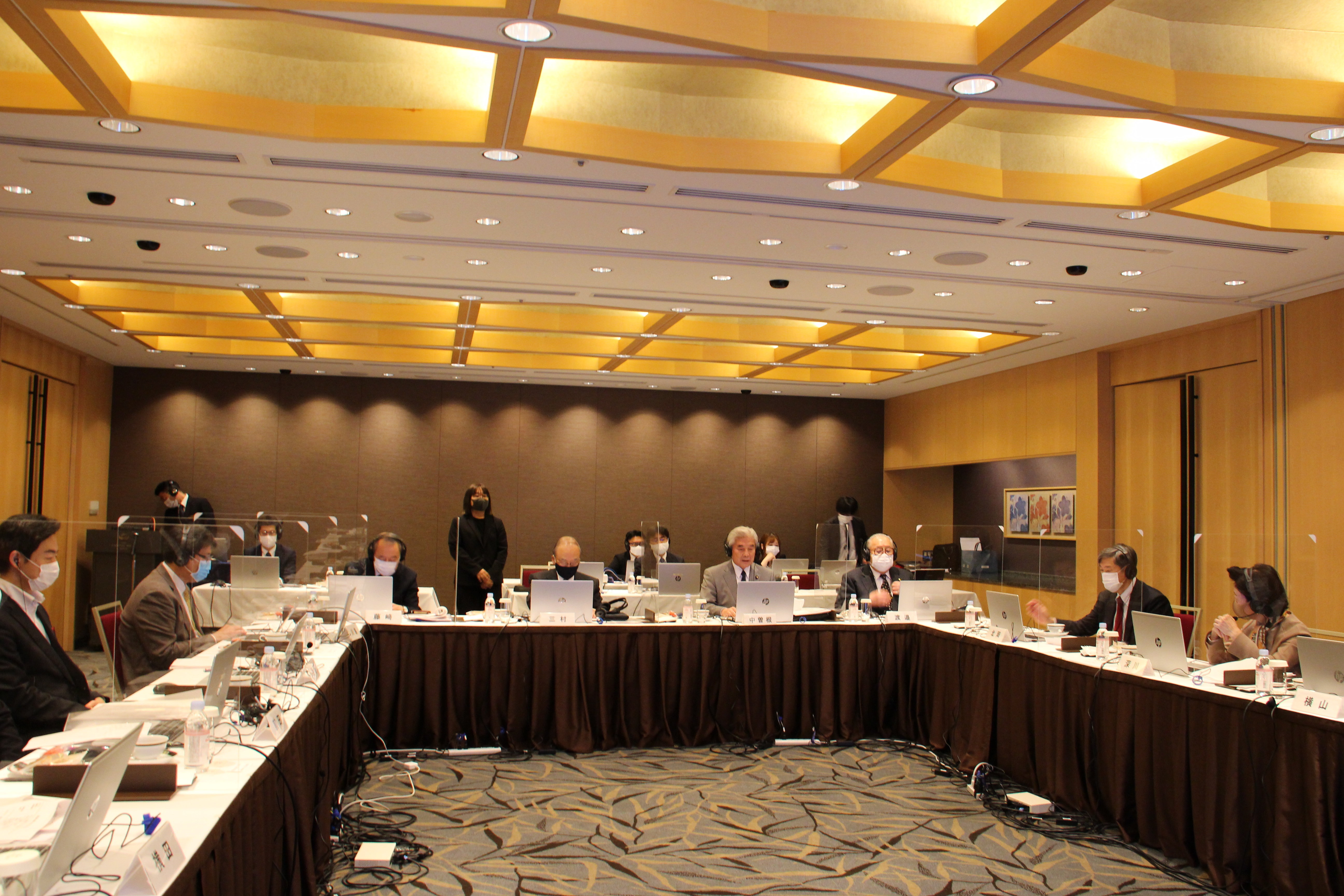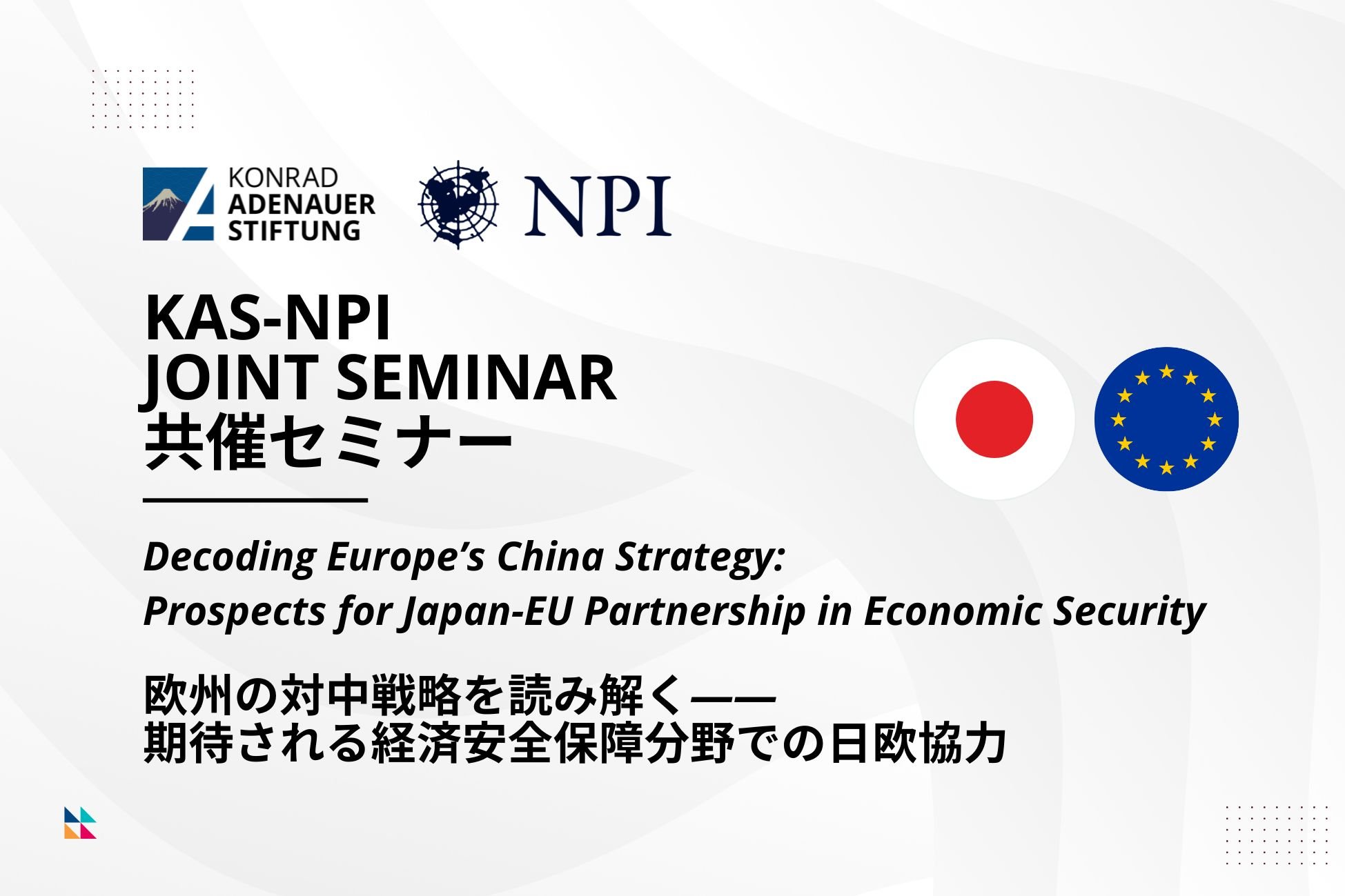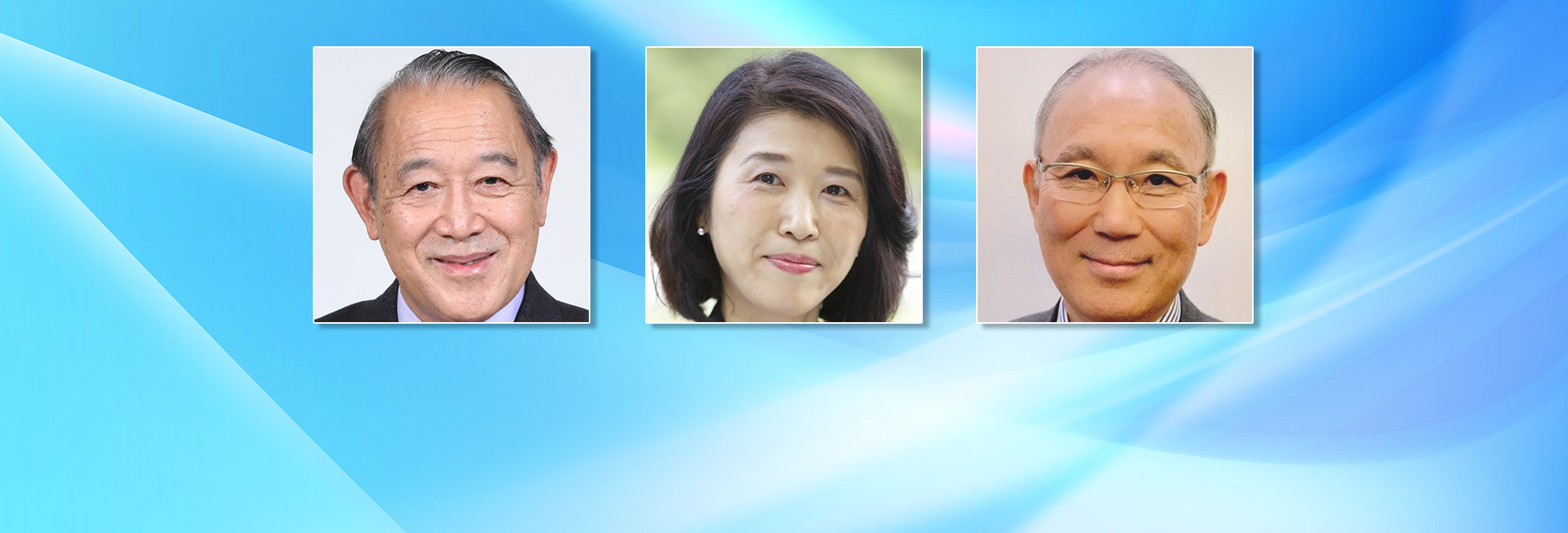2022/01/06
12th Tokyo-Seoul Forum held in an Online Format
On December 4, 2021, Nakasone Peace Institute (NPI) and The Seoul Forum for International Affairs (SFIA), a South Korean research institute, held the 12th Tokyo-Seoul Forum on the theme "Japan and South Korea in the Global Transition" in an online format.
Tokyo-Seoul Forum has been held annually since 2010 with the main purpose of promoting mutual understanding between Japan and South Korea and the friendly development of Japan-South Korea relations. Before the Novel Coronavirus pandemic, the conference was held alternately in Tokyo and Seoul, but the 2020 and 2021 conferences were held in an online format.
In his opening remarks, SFIA Vice-Chairman Ryu Jin, Chairman and CEO of Poongsan Holdings Corporation expressed his hope for the possibility of finding a mutually beneficial solutions to the Japan-Korea relationship in the future.
NPI Vice Chairman Nakasone Hirofumi reviewed the developments surrounding the "strategic competition between the U.S. and China" between the U.S. Biden administration, inaugurated in January 2021, and China's Xi Jinping administration, which adopted a "historical resolution." Then, he responded that it is very meaningful to exchange views frankly at this difficult time.
In Session 1, with the theme, "Japan and South Korea in an Era of a Changing Global Supply Chain and Uncertain World Trade Order," was chaired by Emeritus Professor Tae-Ho Park of Seoul National University. Professor Fukagawa Yukiko, Vice Dean, Waseda University, and Professor Ahn, Dukgeun of Seoul National University, reported and exchanged opinions on the international situation and business environment surrounding Japan and South Korea.
The Leaders' Speeches were chaired by Professor Hoon Jaung of Chung-Ang University, Korea. NPI Chief Research Adviser Kitaoka Shinichi, President of Japan International Cooperation Agency (JICA), gave an overview and analysis of Japan's political situation, and Seoul-Tokyo (SETO) Forum President Shin Kak-soo, former South Korean Ambassador to Japan, gave his views on how to improve the relationship between Japan and South Korea.
Session 2, chaired by NPI President Fujisaki Ichiro, focused on "Responding to Geopolitical Competition between the U.S. and China." Professor Chung Jae-Ho, Seoul National University, and NPI Executive Director of Research ad interim, Kawashima Shin, Professor, The University of Tokyo, reported and exchanged opinions.
Session 3, on the theme of "Japan-Korea Cooperation in the New Political Climate," was chaired by Professor Shin-wha Lee of Korea University and featured presentations and exchange of views by NPI Senior Fellow Nishino Junya, Professor at Keio University, and Professor Park Cheol-Hee, from Seoul National University.
After the general discussion, NPI President Fujisaki Ichiro and SFIA President Kim Myung-ja, former Minister of Environment, summarized the overall discussion and expressed their hopes for future-oriented leadership from both countries, as improved relations between Japan and Korea would allow them to exert influence both regionally and globally.
In their closing remarks, NPI Vice Chairman Mimura Akio, President of the Japan Chamber of Commerce and Industry, and SFIA Chairman Lee Hong-Koo, former Prime Minister of Korea, stressed the importance of continuing frank exchange of opinions, even in the current difficult Japan-Korea relations, and expressed that they look forward to meeting again next year.






